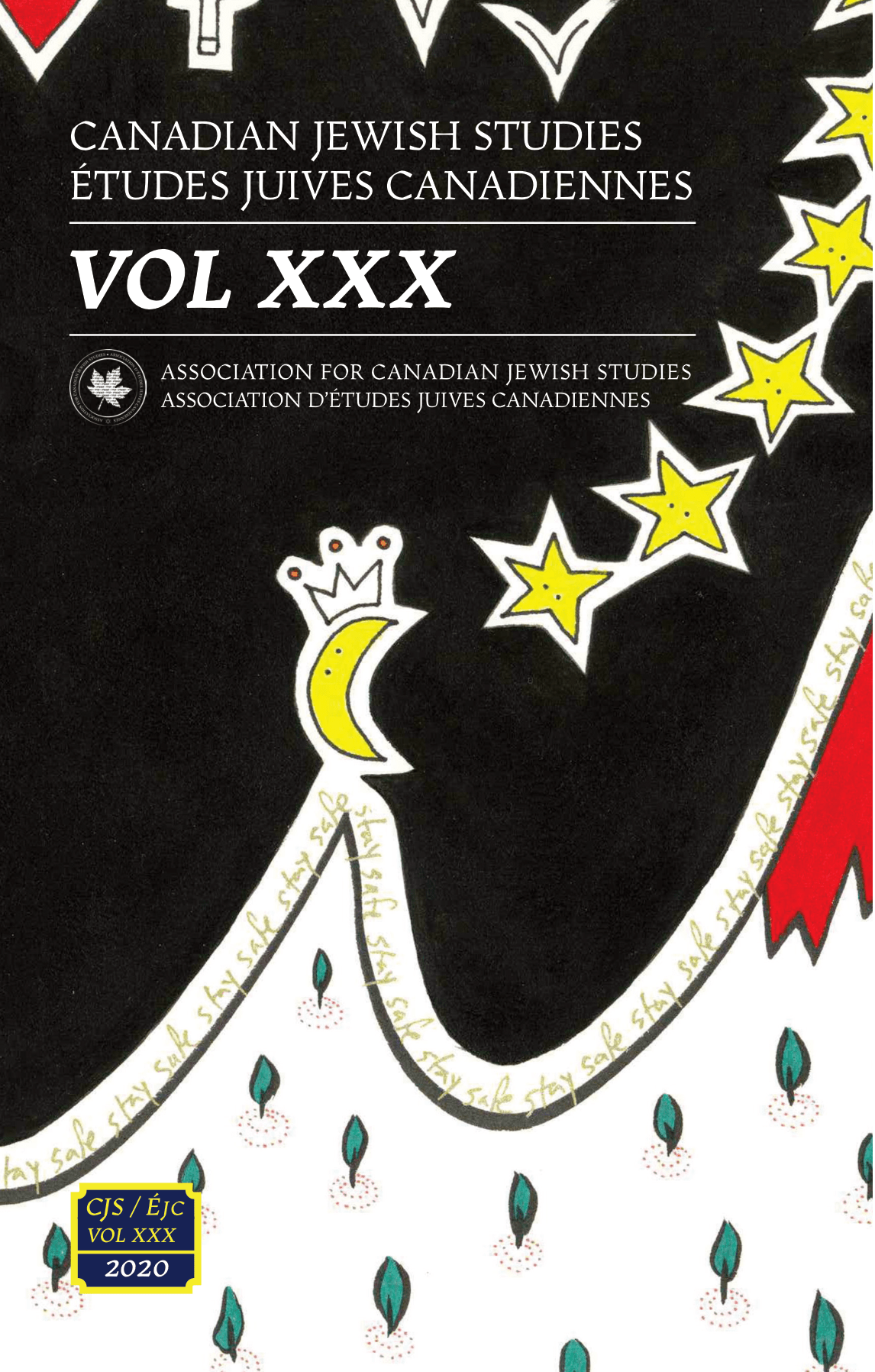Jewish Religious Intermarriage in Canada
DOI:
https://doi.org/10.25071/1916-0925.40184Keywords:
Social policy, Intermarriage, Canadian JewsAbstract
Drawing on secondary literature, this paper first identifies trends in Jewish religious intermarriage in Canada—including variation over time, gender, age and community size. It then critically examines results from the 2018 Survey of Jews in Canada to explore factors associated with intermarriage. Binary logistic regression demonstrates that intermarriage is significantly and independently associated with residing in cities other than Montreal and Toronto, relative youth, male gender, having little Jewish secondary socialization outside the family and having both parents born in Canada. The statistically positive effect of having intermarried parents on children’s likelihood of intermarriage falls if children attend full-time Jewish school and summer camp with Jewish content. The effect disappears if at least one parent is an immigrant. These findings imply that the rising rate of intermarriage can be significantly mitigated if the Jewish community finds the means to increase the proportion of children who undergo intensive Jewish secondary socialization and the proportion of immigrants in the Jewish community. The paper concludes by discussing policies that could facilitate this outcome.
En s’appuyant sur la littérature secondaire, cet article identifie d’abord les tendances des mariages interreligieux juifs au Canada, y compris les variations dans le temps, le sexe, l’âge et la taille des communautés. Il examine ensuite de manière critique les résultats de l’enquête de 2018 sur les Juifs au Canada afin d’étudier les facteurs associés aux mariages mixtes. La régression logistique binaire démontre que les mariages mixtes sont associés de manière significative et indépendante à la résidence dans des villes autres que Montréal et Toronto, à la jeunesse relative, au sexe masculin, à une faible socialisation secondaire juive en dehors de la famille et au fait que les deux parents sont nés au Canada. L’effet statistiquement positif du fait d’avoir des parents mariés à des non-Juifs sur la probabilité de mariage mixte diminue si les enfants fréquentent une école juive à temps plein et un camp d’été à contenu juif. L’effet disparait si au moins un des parents est un immigrant. Ces résultats impliquent que le taux croissant de mariages mixtes peut être considérablement atténué si la communauté juive trouve les moyens d’augmenter la proportion d’enfants qui poursuivent une socialisation secondaire juive intensive et la proportion d’immigrants dans la communauté juive. L’article conclut en discutant des politiques qui pourraient faciliter ce résultat.
References
Downloads
Published
Versions
- 2020-11-24 (5)
- 2021-06-12 (4)
- 2021-04-29 (3)
- 2021-04-05 (2)
- 2020-11-30 (1)
How to Cite
Issue
Section
License
Canadian Jewish Studies/ Études juives canadiennes is a journal dedicated to the open exchange of information; therefore the author agrees that the work published in the journal be made available to the public under a Creative Commons Attribution-Noncommercial-No Derivative Works 4.0 Unported License. The publisher (Association for Canadian Jewish Studies / Association d'études juives canadiennes) recognizes the author's intellectual property rights; authors retain copyright over their work. The author grants the publisher first serial publication rights and the non-exclusive right to mount, preserve, and distribute the intellectual property. The journal is digitized and published on the open access website http://pi.library.yorku.ca/ojs/index.php/cjs/index.







